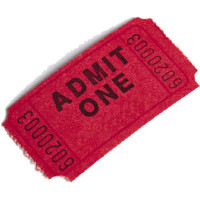Last week, Bride of the Swamp God, the first in the Aculeo & Amunet ebook series, was pirated on a forum.
A link, two servers, my ebook available for free.
It happened on one of those websites where the pirate – but they call them sharers – gets points for uploading items, points that can be spent for a number of services… including requesting a specific title, a book, a movie.
It was a first, for me, and while I did all that was in my power to have the links canceled, I had the opportunity of discussing the situation with a friend, and this led to a number of consideration that I’m trying to summarize in this post.
Mind you, I haven’t discovered nothing new, and I’m not offering any momentous solutions.
But let’s try and see where this gets us…
It’s not about money
Really?
My book was downloaded about one thousand times between the moment it was shared and the moment I had the link cancelled.
This being Bride, the calculation is pretty straightforward – 1000 copies equals 500 euros.
With that money I can afford to live for one month.
But of course, we all know that had it not been shared free of charge, it would not have reached that number of downloads.
So – they got it for free because they would never pay for it anyway.
No loss, right?
But, had I put Bride of the Swamp God up for free on Amazon, I would have achieved at least one thing – 1000 copies in 48 hours means getting in the Top 100 list.
And this means that more people would know about my story, and it would sell a few copies.
Visibility.
My shared ebook got no extra visibility where it counts.
But who knows – free copies might mean reviews.
If only 1% of the copies downloaded will get reviewed in the next month, that would make for a whopping ten reviews, on Goodreads or on some blog somewhere.
That’s good, and it would be great – but it won’t happen.
Because my book will not be read.
Take two, they’re free
Most people download pirated or free contents in bulk, in a form of digital bulimia.
These are not ebooks, these are tokens.
Items, they call them.
This is particularly painful, to an author.
Someone liked my book so much they decided to share it with the world, leading to one thousand people discovering my stories?
That would be great – ok, no sale, but great nonetheless.
Writers want to be read, and appreciated.
We want to feel special.
Bulk uploading in exchange for points robs our books of their dignity.
It does not matter what the book is about.
Good, bad, ugly, it does not matter.
Screw the characters, who cares about the story – gimme the points!
Tokens.
If this is a consolation – the pirated copies are not lost sales, because they end up on the hard disks of people that would have bought them anyway – it’s also the ultimate show of indifference: it is telling us that what we do is worthless, not only in the sense of devoid of any value, but also devoid of any meaning.
We are producing tokens.
This is why when I was told that the presence of my ebook on that forum, and the downloads, showed the fact that there is “interest” in my work, I got royally pissed off.
Because it’s false.
It’s an illusion – and it’s not the only one.
It’s just a game
One thing that struck me while discussing the state of my poor little lonely ebook with a friend was the language she used.
Acquiring and trading points (and pirated ebooks) is part of a “game”.
Ebooks get “requested” and “shared”.
Granted, sounds a lot better than stealing – and I’m sorry, but that’s what we are talking about.
Stealing.
But the language – and the general gaming atmosphere – are there to take the edge off.
After all, I played some silly online game, I got these points, I’d like to read a book but I’m not willing to pay an admission fee of 1.50 euro for it, I can post a “request” and pay for it with my points, and somebody will “share”… nobody gets hurt.
The “request” bit puts a different spin on what I said before – about piracy not being really a sales loss.
If someone “requests” my book, that’s a lost sale, that’s money I lose.
But that’s not the point.
Now don’t get me wrong – I’ve been living among books for almost forty years now.
I lent a number of books to friends and acquaintances.
It’s ok.
It’s part of the reader ecology.
You ask me if I’ve got a copy of an old book, I have it and I lend it to you.
Nice and smooth.
Nobody gets damaged, right?
But here, despite the language, despite the request and the share, despite the friendly atmosphere, we are dealing with a different situation.
I don’t know you, and you don’t know me – we’re not friends, we’re just playing at being friends.
It’s not personal.
But anyway, you ask me if I have a copy of an old book.
I put it up so everybody and his wife can get a copy.
You ask me if I’ve got a book you’d like to read – and I set up a public library.
The fact that we are not talking old musty tomes last reprinted in the fifties, but readily available cheap ebooks is also a big difference from the “lending between friends” situation.
But the whole thing is designed to lull the users into believing it’s all just a merry game, trading tokens and sharing, and nobody gets hurt, nobody is really touched by what’s happening.
C’mon, what’s a few copies more or less for a writer?
Self-publishers die here
 For a small act like an author/publisher, few copies mean a few bucks.
For a small act like an author/publisher, few copies mean a few bucks.
A review means reaching more readers – and maybe a few bucks more.
And you don’t need me to tell you that, the times being what they are, every buck counts.
When your sales are counted in tens of copies, a thousand copies downloaded for free to be forgotten is a killer blow.
Not only to our finances (as I said, they would not have paid anyway), but to our self-esteem, to our willingness to do it again.
Why bother?
Why not just write and then give the stuff away for free?
And indeed, I remember the person that told me, a few years back, that writers should give their stuff away for free, and “get a real job” to pay their bills.
It is a killer blow to our dignity.
To the dignity of what we have chosen as a profession.
It’s the ultimate act of aggression, the definitive form of bullying.
Piracy can be a killer for self-publishers, draining away every reason we have to do what we do – and giving us a blow that can be much harder to stand, for us, than it is for big operations.
Granted, a few mails and private messages to the administrators, and our pirated content will be removed – limiting the damage.
But every hour spent looking for pirated contents and requesting cancellation is an hour subtracted to writing, because self-publishers do not have an office looking into piracy issues – we are alone, we must do all the job.
So what can I do about it?
Nothing.
The only way we have to avoid being pirated is stop writing, stop publishing.
It’s not a matter of “stop selling” because we can find pirated versions of free contents, out there – as I said, the substance does not count, it’s just tokens.
DRMs and watermarks are not a solution -as usual, they become a hindrance for authors and readers, not for thieves.
The only way is stop writing – and that’s not an option, of course.
Maybe we should realize that this whole thing is damaging our culture much more than is damaging us.
As I said, the vast majority of those that pirate our books are not interested in them – we are not losing sales, we are not losing money, or visibility.
On the other hand, we are being treated like dirt.
We are being told that writing – and all that goes with it – is meaningless, useless, worthless.
That’s not nice.
And underlying it all there is this strange, sinister “it’s just a game” vibe that’s really really dangerous.
Because if it’s just a game nobody gets hurt, right?
If they complain, they are just spoilsports.
And once that meme settles in, you are a little less human.



10 November 2014 at 11:05
Great post and very acute observations, thank you for sharing.
I admit I never thought about it in those terms, and reading your post made me feel shallow and naive.
It’s very disturbing especially the part about “It ‘s all a game.”
Also while I was reading your post for a moment I thought you might want to stop writing, I am really glad that you will not stop.
And now…how many people would continue to consider piracy as a minor problem if they thought that this may bring their own favorite writers to stop writing?
LikeLike
10 November 2014 at 14:49
This post really struck hard. I pirated some books in the past, I stopped only whennI started knowing authors, talking with them and so…
Well, I still download pirated ebook sometimes, but it’s all about books that I can’t find at all…
I even bought books that I pirated in the past. Dimitri, Scarrow, others.
I thought you’d stop writing, and I got reeeeally scared! ^_^””
LikeLike